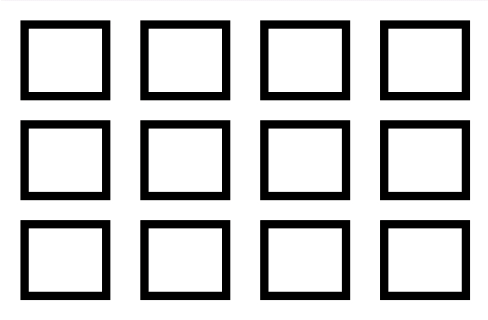‘There is no algorithm, except to communicate with people,’ Olha Diatel on how to find funding for your project abroad
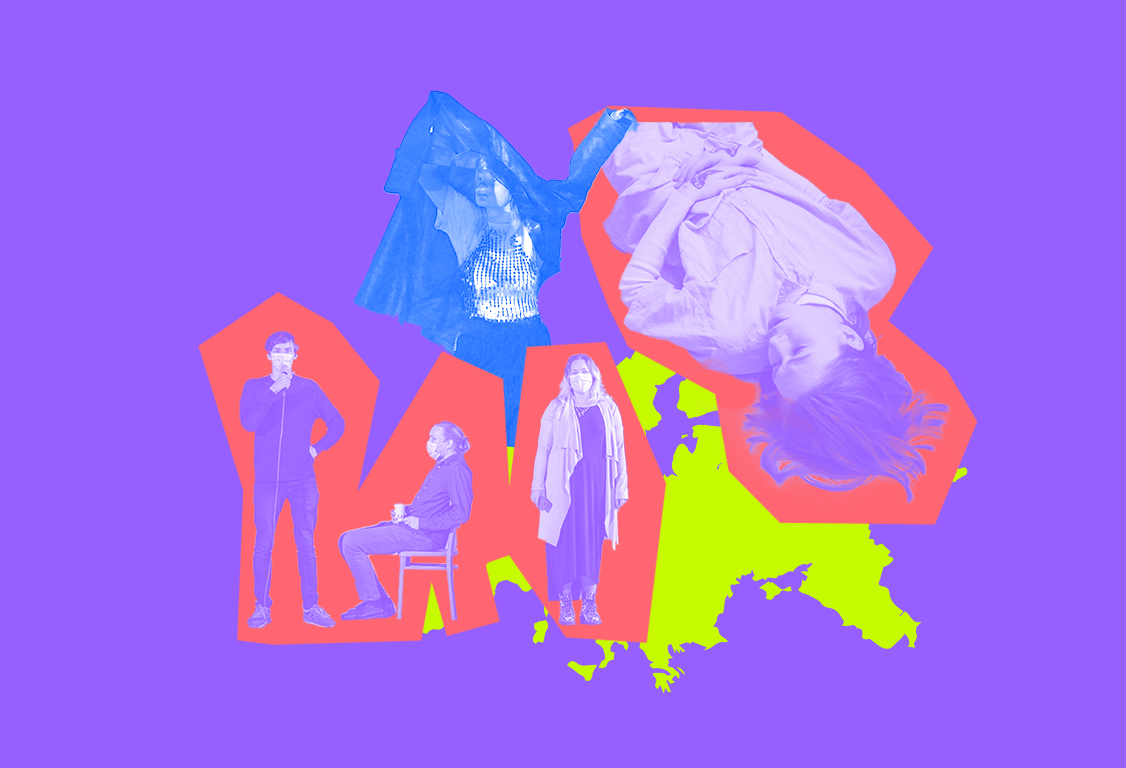
Olha Diatel is a cultural manager and producer in the performing arts, as well as the co-founder of Proto Produkciia, an agency dedicated to promoting independent Ukrainian culture.
Following the onset of Russia’s full-scale invasion, Proto Produkciia launched Antonin Artaud Fellowship—in honour of the French writer and playwright—aimed at supporting Ukrainian artists in the performing arts field. As a result, artists received funding for their projects, mentorship, and the opportunity to present their work abroad.
Olha spoke about promoting Ukraine through performance, sending hundreds of letters to secure just one presentation abroad, and the partners’ “flirting” with Russians. She also shared valuable insights from her own experience, offering practical advice to Ukrainian cultural actors on how to secure funding for their projects.
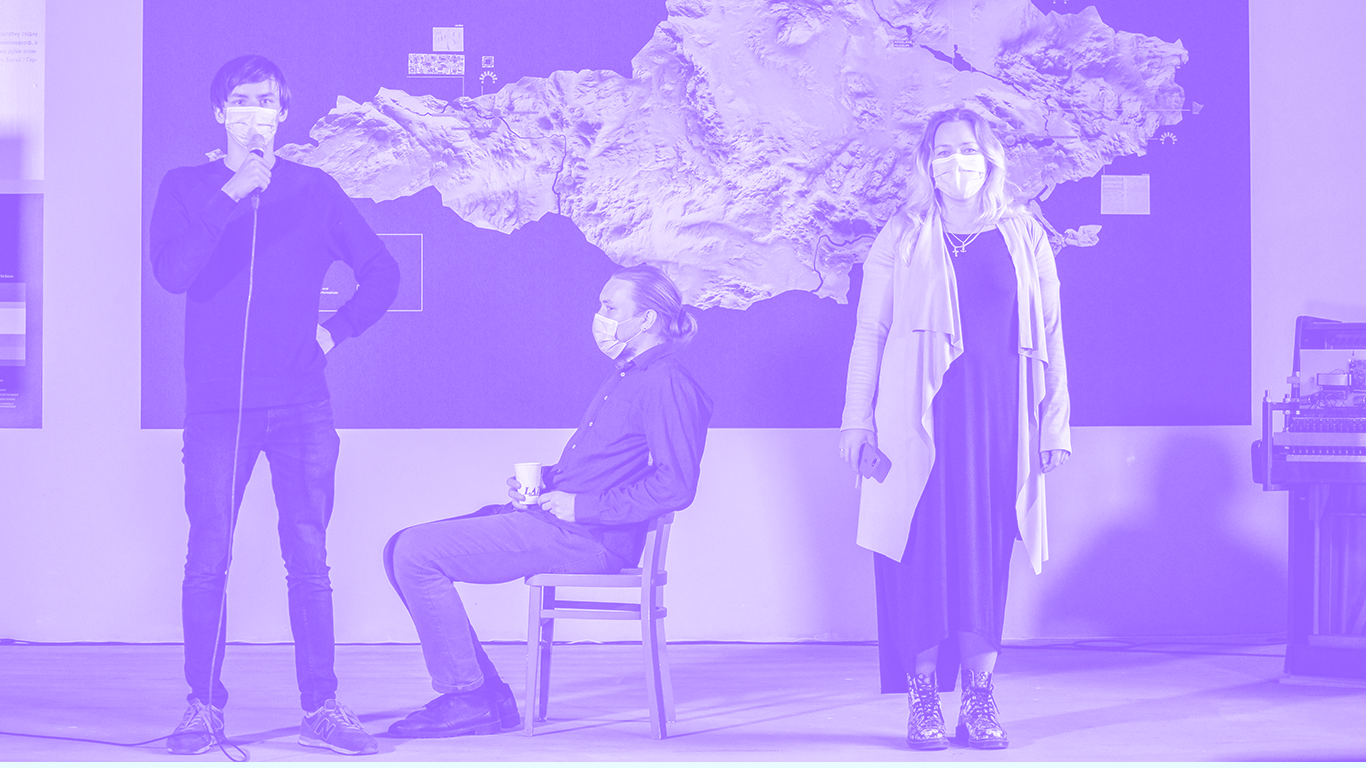
The team of Proto Produkciia's performative division at the opening of the Chornobyldorf Culture Museum. Photo credits: Artem Galkin.
‘Chornobyldorf’ is a highly significant work in the context of the outbreak of the full-scale war. In the early days of the invasion, there were reports that the Russians had targeted the Enerhodar nuclear power plant with their weapons. In 2020, we had filmed near it for the ‘Chornobyldorf’ performance. Before the full-scale invasion, ‘Chornobyldorf’ was an imagined narrative about a society after all the disasters. Yet, the disaster began to unfold before our very eyes. For me, this profoundly actualised both the project and artistic activity as a whole.
We intensified our communication on social media, and I began reaching out to partners with whom we had previously been in contact, letting them know that we were still there, we were alive, and we recognised the importance of continuing with art projects, even though we were uncertain about whether we could proceed. However, in March 2022, we found funding, and our partners from Austria responded. By early May, we were able to bring the new ‘Chornobyldorf’ team to Vienna for a week, reassemble the play, and present it at the Rotterdam Festival in the Netherlands.
After the first international presentation in May 2022, it became clear that there was now significant attention on Ukrainian artistic products, and this attention needed to be supported through diplomacy, security, and assistance. We also understood that this was a temporary phenomenon. Regardless of whether this corridor of attention remained open or not, we needed to ensure we were present on international platforms.
Supporting artists amidst total restrictions
One of our key areas of focus is the production of performing arts. We established the Antonin Artaud Fellowship as a direct response to the full-scale invasion, aiming to support artists working in performance and theatre in Ukraine.
At the onset of the full-scale invasion, there was a strong international response to support Ukrainian culture. Many offered scholarships and residencies for those who had fled. For those who remained in Ukraine, during the first year of the great war, there were not many options—even at the level of grant-making institutions.
We realised that, on the one hand, we needed to keep the world’s attention focused on Ukraine. On the other hand, we had several limiting factors: funding, the ongoing war, and stress. Under these conditions of total restrictions, we needed to work as effectively—or even more effectively—than the actors in other countries.
So, I thought, ‘We need to support talents in the performing arts,’ meaning the process of searching and experimenting.
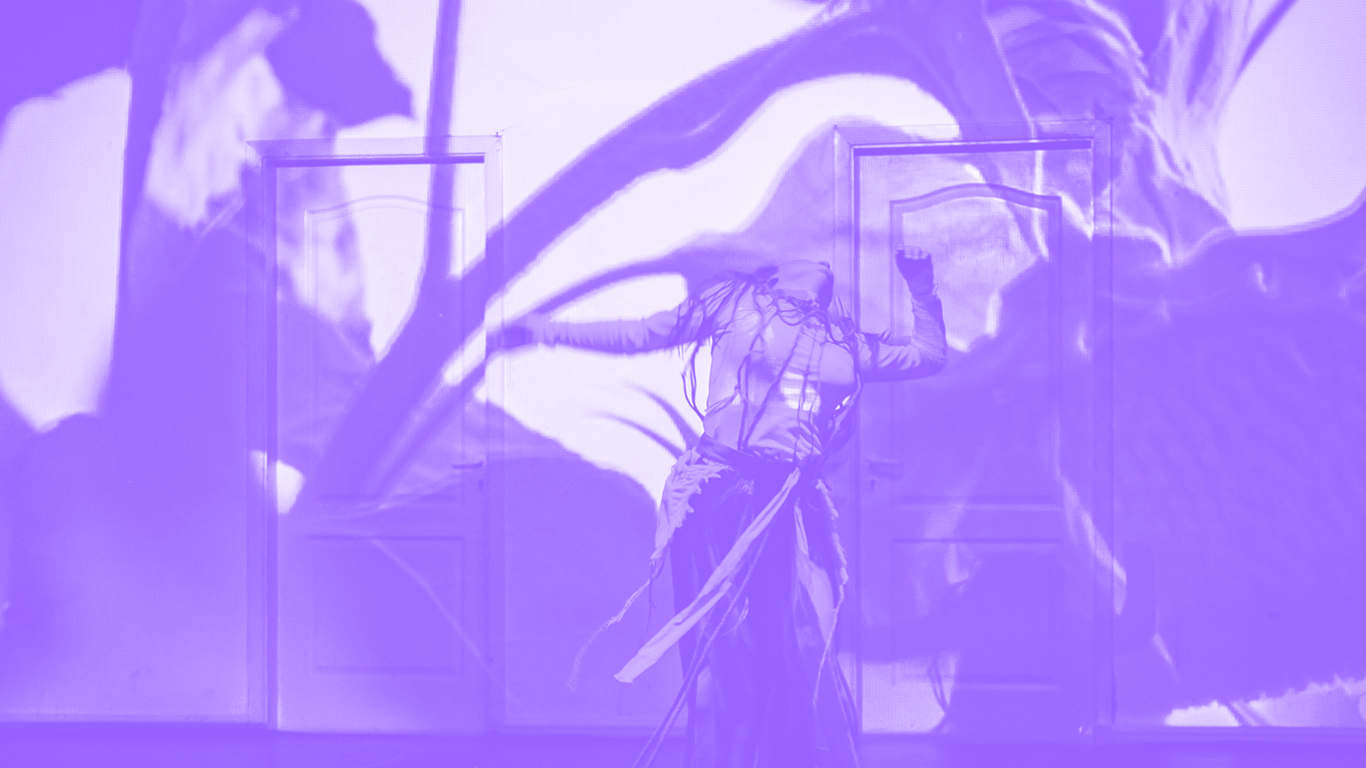
The performance ‘Thread’ by Yevheniia Mielkonian
The amount of the Artaud Fellowship is UAH 40,000. We also provide the fellowship recipients with mentors and organisational support—such as promotions, venue search, and event organisation. In other words, we’re offering a modest amount of support and some work towards the exit. It’s a type of work-in-progress to see whether the concept is compelling, and whether cooperation and interaction with the audience are successful.
Typically, we have 4–10 available slots for each open call, and we receive 50–80 applications. Since the launch of the fellowship, we’ve supported 23 ideas in total.
Of all the fellowship recipients, I was personally most impressed by Anna Vinogradova’s ‘Me and Olga.’ This work was originally presented as exploring the mother-daughter relationship, but it turned out to be more about the cultural fabric of Donetsk. For me, it’s a good example of how local stories can be universally understood. Moreover, Anna’s mother is a ballerina, and the project also explored their interaction.
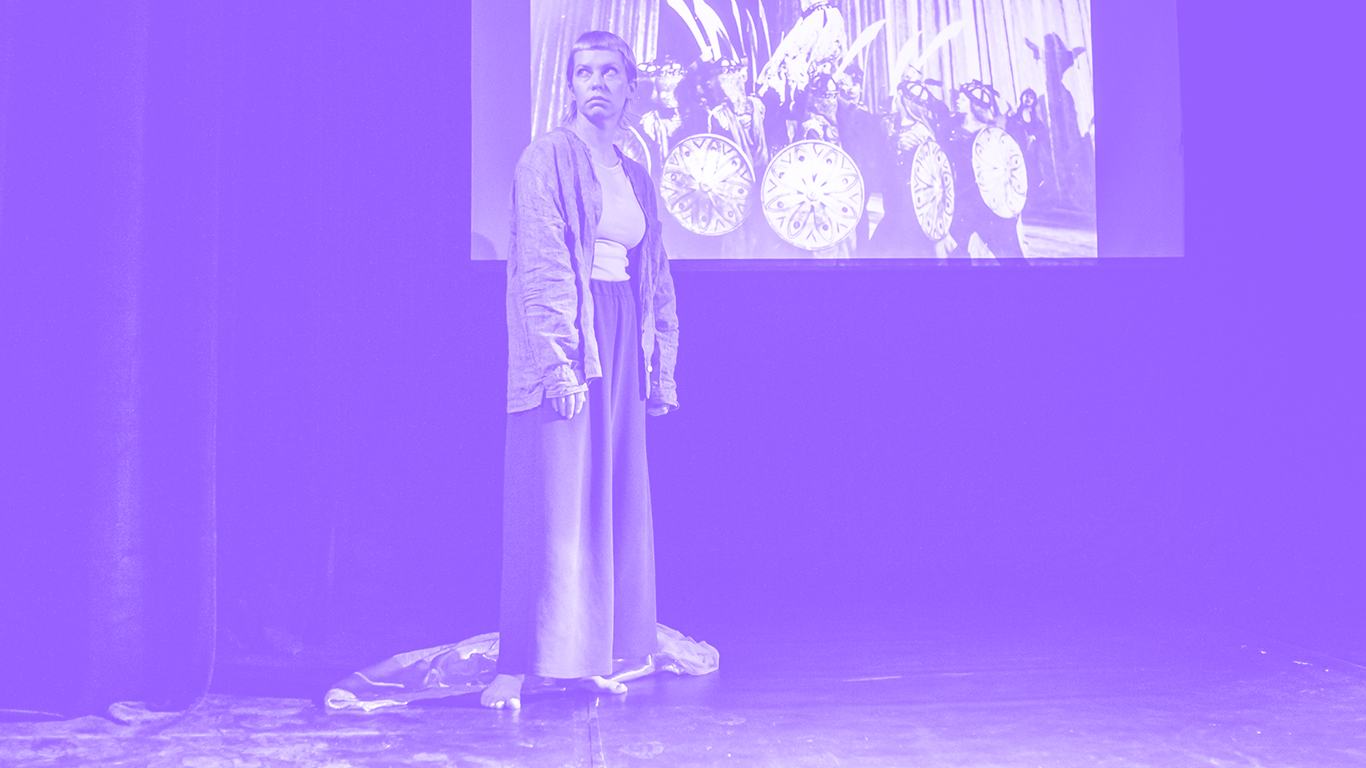
Hanna Vinohradova during the performance ‘Me and Olha’. Photo credits: Valeriia Landar.
The second piece is ‘Lost Motion’ by Nana Biakova. Before the full-scale invasion, Nana lived in Japan and returned to Ukraine in early 2023. Her concept was to explore her hometown of Mykolaiv, which she hadn’t visited for a long time, and objects that had lost their motion. There’s a story about the cruiser ‘Ukraine,’ which was built in Soviet times but never completed, and about Nana’s multi-room apartment filled with things, that hadn’t been lived in for a long time. She also created a performance with movements, and there are many videos filmed in Mykolaiv.
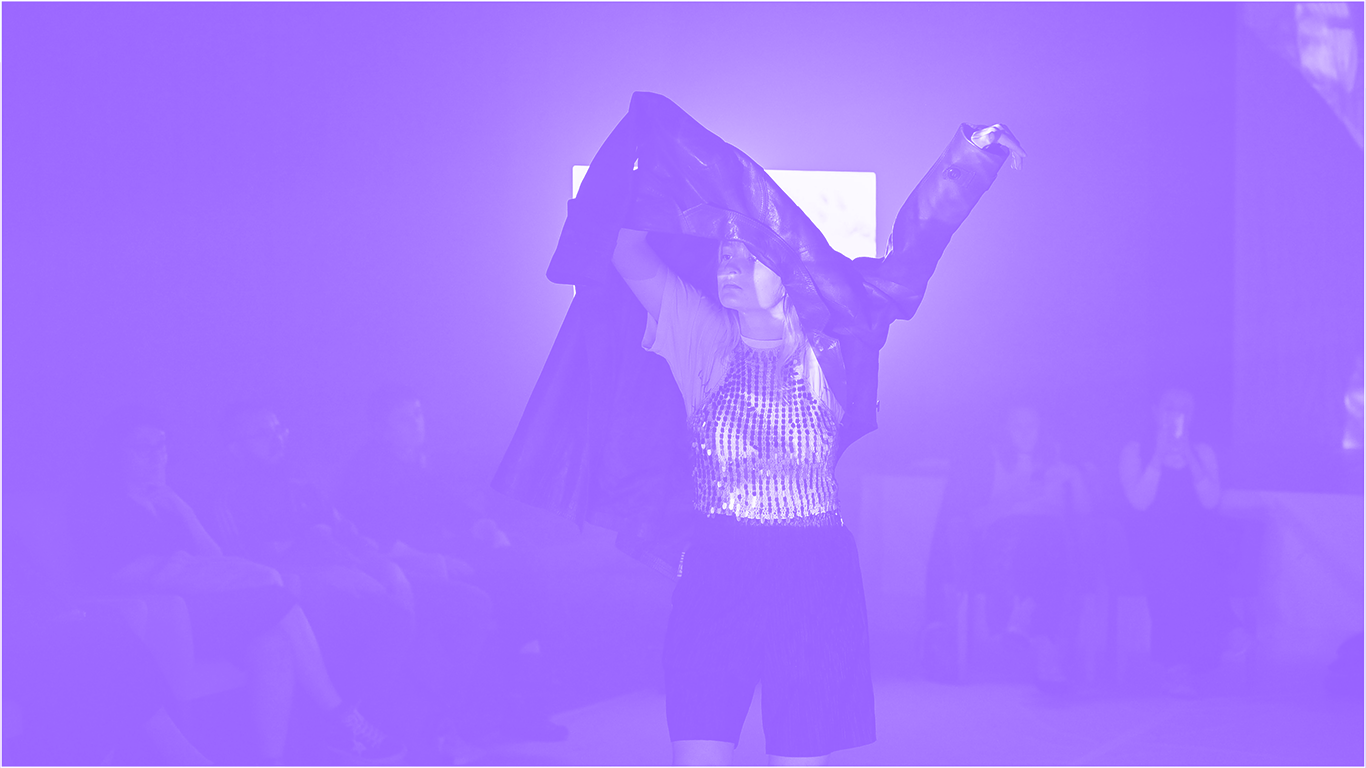
The performance ‘Lost Movement’ by Nana Biakova in Bucharest. Photo credits: Mihai Benea.
Looking for funding
We look for funding everywhere. (Laughs.) But now, it’s mostly through grants.
We made our first “pilot” thanks to the Goethe-Institut’s Stabilisation Fund. They supported four works. Then we had six ideas dedicated to the Ukrainian South. These were funded by UCBI and American funds.
The next one was an international cooperation grant from House of Europe. This project supported the creation of five works. The fellowship holders were also given two options: a residency in Bucharest with a presentation of their work at the end; and a separate presentation in other countries.
Four more works were funded by the European Cultural Foundation.
Now, we have won a grant from Creative Europe, which amounts to EUR 100,000 for the Artaud Fellowship. However, we applied with a partner, who is now insisting that we collaborate with Russian artists. The project will go ahead without him, or, if we cannot replace the partner, it won’t happen. It’s a sad story: we need funding, but we can’t afford to raise it in this context.
Foreign presentations and audience reactions to Ukrainian art
I was very inspired by a trip to the UK when ‘Chornobyldorf’ was shown at the Huddersfield Contemporary Music Festival. At the opening ceremony, the first director of the festival, who is 40 years old, came up to me. And I thought that I also want to do something that will endure when I’m old. (Laughs.) But 40 years is already a time when you can assess whether the process has influenced something.
On the one hand, we are still at the stage of building our work and experimenting. On the other hand, in the second year, we made significant progress with foreign presentations.
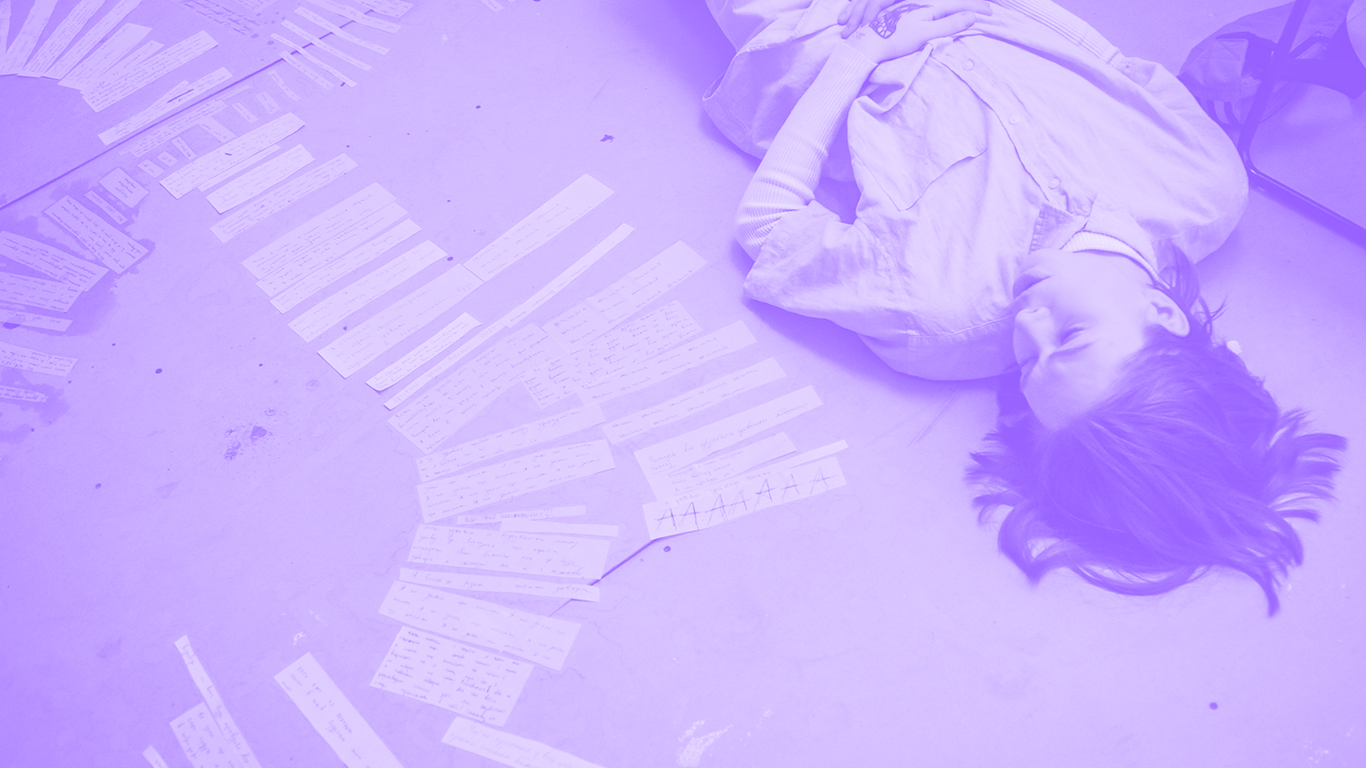
The performance ‘Space of Unfree Expression’ by Ania Shevchenko in Berlin. Photo credits: Valeriia Landar.
The first was Nana’s work in February 2024 in Berlin, followed by her selection for a residency and show in Bucharest. Additionally, as part of House of Europe, on 17–18 September, Anna Shevchenko performed at the Export/Import Performance Festival in Berlin.
Next year, an interesting project called Performing Memory will take place. Its organisers are seeking non-trivial ways of international presentations. Local artists will create works without authorship, based on communication with them. We will implement this project with Nana Biakova and Sasha Kurmaz.
Many international festivals say, ‘We would like to see works from different countries, but we don't have the budget.’ We tried to reconcile this desire with the available funds. When we write, ‘We are from Ukraine, we have works, and we have money to show them,’ this already makes a difference. It’s about parity: You don’t approach with the message that we are poor, unhappy, and struggling, but with the message that while we face challenges, we are ready to be equal partners.
Usually, the audience’s reaction to Ukrainian art abroad is supportive. In general, the reaction depends on the country. For example, in Germany and France, in the early years of the full-scale war, there were more “misunderstandings,” but now the support is much stronger. In Austria, things were as bad as they are now—people may say, ‘Sorry, let’s work with Russian artists.’ However, it is more important to me how professionals react because they have a quality filter and influence the formation of programmes that a wider audience will see.
What is needed for successful international cooperation?
There are three factors I have outlined for successful international cooperation at the moment.
The first factor is time. Even if you have the money, a foreign presentation won’t happen quickly. Negotiations usually take six months or more, often two years.
A vivid example is the organisation of a foreign tour to the United States. Negotiations begin a year in advance, visa documents are prepared eight months ahead of time, and then logistics are coordinated for an extended period. The presentation does not last long, but it is often preceded by a year’s work and constant communication: at least 100 emails and additional calls.
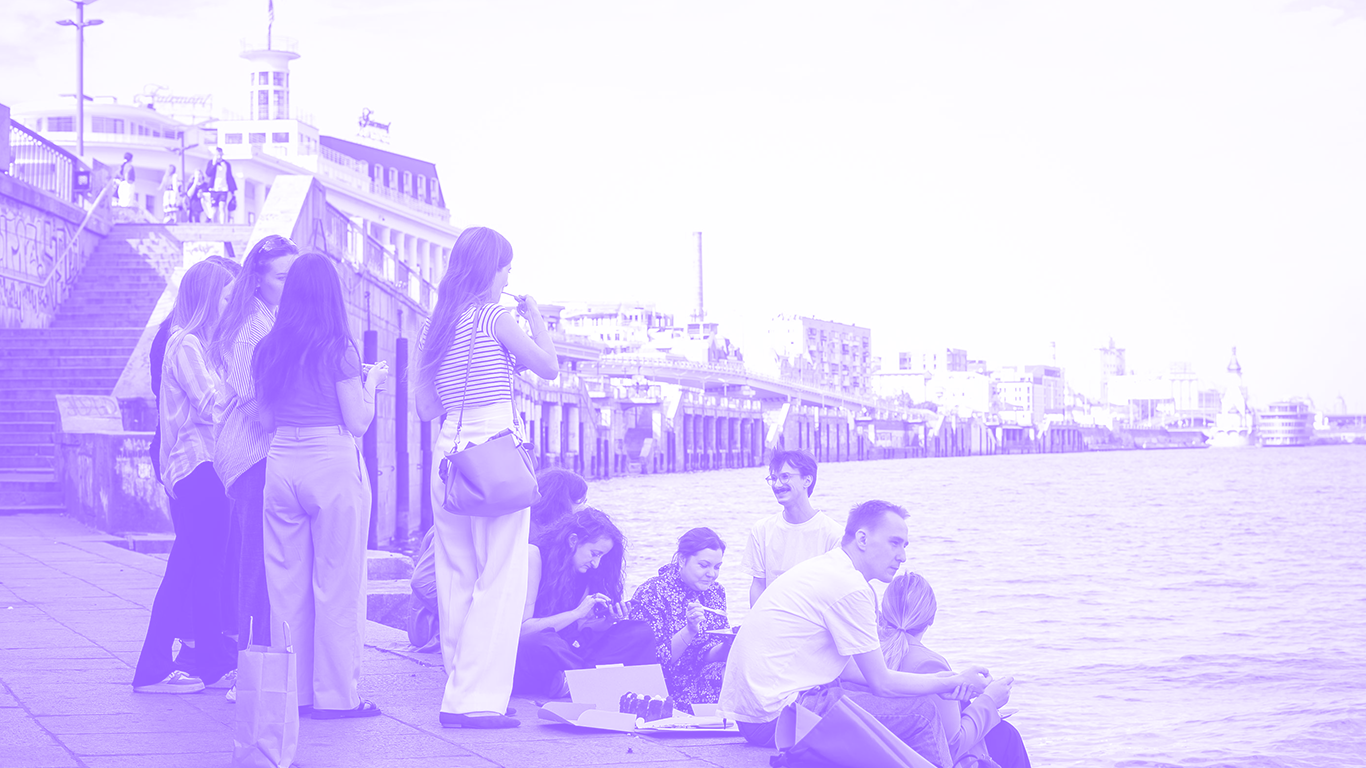
Proto Produkciia during a team meeting in 2024
The second factor is personal contact. People often ask, ‘What’s the algorithm for your works being shown abroad?’ I always say, ‘There is no algorithm, except to communicate with people.’ Even using the example of the Artaud Fellowship: we organised all the foreign presentations through personal contacts that we had previously developed.
Once, I was asked, ‘You’ve spoken to the director of the Avignon Festival, haven’t you? (This is one of the most important theatre festivals). Didn’t he invite you?’ It is not enough to speak with the director once to be invited somewhere. It works like a relationship: people need to see what you do and understand whether they can keep in touch with you for the long term. For the most part, cooperation also requires knowledge of English: if you don’t have a common language, what can you discuss?
The third factor is the quality of the work and its identification. Before you approach someone, you need to ask yourself, ‘Am I talking about dance? Or am I talking about performance? Or am I talking about theatre?’This way, you can determine which festival you should submit your work to: dance, music, or another.
In general, this is a process that requires a lot of time, consistent, and systematic work. You get a letter, you respond. And then, maybe, in two or three years, something will come of it.
Text: Dmytro Kuzubov
Translation into English: Iryna Goyal
